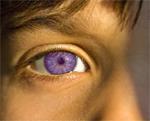- Posts: 2005
- Thank you received: 16
new computer arrived
- Wily Fox aka Angela
-

- Mountain Legend
-

Less
More
24 Sep 2010 12:08 #11
by Wily Fox aka Angela
Replied by Wily Fox aka Angela on topic new computer arrived
funny, because I really LIKE Windows 7. I completely skipped the OS after XP Professional because that one really sucked. It loads fast, troubleshoots problems automatically, and interface is clean. This is the first good thing I've had to say about Microsoft ever. Oh yeah, I even downloaded the beta IE 9 and like that as well. I can't believe I am saying this! I have used Firefox for years, but lately, it is slow and isn't working as expected. I've had to bomb out of it quite a lot.
I'd love a MAC, but I can't afford one and I can't afford to replace all my applications as well. And I build my own desktop as well.
I'd love a MAC, but I can't afford one and I can't afford to replace all my applications as well. And I build my own desktop as well.
Please Log in or Create an account to join the conversation.
- RCCL
-

- Mountain Advisor
-

Less
More
- Posts: 234
- Thank you received: 0
03 Oct 2010 08:12 #12
by RCCL
Replied by RCCL on topic new computer arrived
Oooh! Two great discussions in one thread!
Major Bean,
If you're looking to virtualize to try out some different options, I would suggest Oracle/Sun's "Virtualbox". It's simple and has a lot of prompting and informational pop-ups for first time users. As far as what OS you want to virtualize, I would not suggest a 64-bit one. From a Linux perspective, you're looking at a whole different animal. Currently, I have a dual-boot system with Windows 7 and 64-bit Ubuntu, and I run seven virtual machines for different professional purposes. The problem with 64-bit Linux, although it's gotten a lot better, is that the drivers and community support isn't quite there yet, and the system will be less stable. VMware's Workstation edition may also do what you want for virtual computing, and they even offer free support for 30 days, but I think that Virtualbox may be a better fit to begin with!
Keep in mind, virtualizing a system will segment some of your system's resources to accomplish this task while it's turned on. You'll have to download a system install image for Linux, if that's what you want to install (I'd suggest Ubuntu, it is very user friendly and easily managed/installed). These are free online. After you've installed VirtualBox, you'll create a system, segment off a portion of your hard-drive to use virtually. One of the nice things is that you don't have to burn the CD-Image to a disc, you just have to tell VirtualBox where you downloaded it, and it will load it to the virtual machine!
Now, on to the great Windows/Mac debate!
Honestly... I've worked on both, and I've worked in environments that run both systems for different purposes, from video production houses to major IT corporations. There are things that Mac computers are very good at, and have always lead the industry in. Five years ago, I would have espoused the typical praise, that they're more reliable, that they are better for graphics and graphic processing, etc., but anymore that's not exactly true.
I'm not saying that Mac's have gotten worse, I'm saying that PCs, and Microsoft specifically, have gotten better. Windows 7 represents a great leap for Microsoft, and one they needed to take to catch up. While Apple and Linux have been focusing on the user experience for years, Microsoft has been bogged down in functionality and availability. There's a downside to being the largest business operating system in the world, and it's most visible when you attempt to innovate. If you need an example of this, ask most users what they think of Office 2007. (I love it, by the way :woo hoo: )
The benefit for all consumers is that this innovation means that the competition is fierce, and nobody is really "winning" anymore. Sure, Microsoft has the largest market share, but from both a user and administrative perspective, I prefer the availability of both over one or the other. If I had my choice, I'd have a Mac that can dual-boot Windows (which any newer Mac can), and I would have installed Windows 7 to run the programs the Mac can't.
All in all, there's very little difference between the two anymore, save for one area that Mac has excelled in more-recently than ever before: drivers. While Windows caters to nearly every type of hardware, and allows integration of all types of peripherals, Mac is different in may respects, and it has allowed them the freedom of making and using generic driver sets that let you run things simply by plugging them in, rather than having to search down the right driver set. It's limiting, on the one hand, and extremely beneficial from a user-perspective, on the other.
Anymore, the arguments over stability and functionality for either system can be counter-pointed to something else on the opposing side, it's really come down to preference more than features, anymore... but to the benefit of all.
Major Bean,
If you're looking to virtualize to try out some different options, I would suggest Oracle/Sun's "Virtualbox". It's simple and has a lot of prompting and informational pop-ups for first time users. As far as what OS you want to virtualize, I would not suggest a 64-bit one. From a Linux perspective, you're looking at a whole different animal. Currently, I have a dual-boot system with Windows 7 and 64-bit Ubuntu, and I run seven virtual machines for different professional purposes. The problem with 64-bit Linux, although it's gotten a lot better, is that the drivers and community support isn't quite there yet, and the system will be less stable. VMware's Workstation edition may also do what you want for virtual computing, and they even offer free support for 30 days, but I think that Virtualbox may be a better fit to begin with!
Keep in mind, virtualizing a system will segment some of your system's resources to accomplish this task while it's turned on. You'll have to download a system install image for Linux, if that's what you want to install (I'd suggest Ubuntu, it is very user friendly and easily managed/installed). These are free online. After you've installed VirtualBox, you'll create a system, segment off a portion of your hard-drive to use virtually. One of the nice things is that you don't have to burn the CD-Image to a disc, you just have to tell VirtualBox where you downloaded it, and it will load it to the virtual machine!
Now, on to the great Windows/Mac debate!
Honestly... I've worked on both, and I've worked in environments that run both systems for different purposes, from video production houses to major IT corporations. There are things that Mac computers are very good at, and have always lead the industry in. Five years ago, I would have espoused the typical praise, that they're more reliable, that they are better for graphics and graphic processing, etc., but anymore that's not exactly true.
I'm not saying that Mac's have gotten worse, I'm saying that PCs, and Microsoft specifically, have gotten better. Windows 7 represents a great leap for Microsoft, and one they needed to take to catch up. While Apple and Linux have been focusing on the user experience for years, Microsoft has been bogged down in functionality and availability. There's a downside to being the largest business operating system in the world, and it's most visible when you attempt to innovate. If you need an example of this, ask most users what they think of Office 2007. (I love it, by the way :woo hoo: )
The benefit for all consumers is that this innovation means that the competition is fierce, and nobody is really "winning" anymore. Sure, Microsoft has the largest market share, but from both a user and administrative perspective, I prefer the availability of both over one or the other. If I had my choice, I'd have a Mac that can dual-boot Windows (which any newer Mac can), and I would have installed Windows 7 to run the programs the Mac can't.
All in all, there's very little difference between the two anymore, save for one area that Mac has excelled in more-recently than ever before: drivers. While Windows caters to nearly every type of hardware, and allows integration of all types of peripherals, Mac is different in may respects, and it has allowed them the freedom of making and using generic driver sets that let you run things simply by plugging them in, rather than having to search down the right driver set. It's limiting, on the one hand, and extremely beneficial from a user-perspective, on the other.
Anymore, the arguments over stability and functionality for either system can be counter-pointed to something else on the opposing side, it's really come down to preference more than features, anymore... but to the benefit of all.
Please Log in or Create an account to join the conversation.
- Wayne Harrison
-

- Mountain Legend
-

Less
More
- Posts: 6722
- Thank you received: 72
03 Oct 2010 08:42 #13
by Wayne Harrison
Replied by Wayne Harrison on topic new computer arrived
I've been running Vista on a Dell for several years. I've had very few problems and prefer it over XP.
Please Log in or Create an account to join the conversation.
- Wily Fox aka Angela
-

- Mountain Legend
-

Less
More
- Posts: 2005
- Thank you received: 16
03 Oct 2010 09:08 #14
by Wily Fox aka Angela
Replied by Wily Fox aka Angela on topic new computer arrived
RCCL, speaking of drivers. . . that was a REALLY GOOD EXPERIENCE with the 7 upgrade. I did not have to toss ANY equipment or software, so Microsoft must have gotten the code out to vendors in better time than usual.
Please Log in or Create an account to join the conversation.
- RCCL
-

- Mountain Advisor
-

Less
More
- Posts: 234
- Thank you received: 0
03 Oct 2010 20:15 #15
by RCCL
Replied by RCCL on topic new computer arrived
LOL!
I'm glad somebody's was! Mine sure wasn't!
My motherboard required a special patch even to upgrade, it still fails if it has more than 2GB installed memory before the OS is upgraded and patched... Top that off with trouble with an audio driver... and I've sworn off Asus parts forever!
Given, that's more an Asus thing than a Microsoft thing... but... argh!
I'm glad somebody's was! Mine sure wasn't!
My motherboard required a special patch even to upgrade, it still fails if it has more than 2GB installed memory before the OS is upgraded and patched... Top that off with trouble with an audio driver... and I've sworn off Asus parts forever!
Given, that's more an Asus thing than a Microsoft thing... but... argh!
Please Log in or Create an account to join the conversation.
- jonascripe
-

- Tourist
-

Less
More
- Posts: 10
- Thank you received: 0
30 Jan 2011 10:37 #16
by jonascripe
Replied by jonascripe on topic new computer arrived
ubuntu user here adding his vote to install linux
Please Log in or Create an account to join the conversation.
Time to create page: 0.149 seconds







